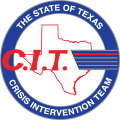The state of Texas is in the midst of a mental healthcare treatment crisis, and the city of Austin and its surrounding areas have not been spared from the problem.
Multiple news reports have cited insufficient funding, staffing shortages, and substandard services as among the obstacles that are preventing many Texans from receiving effective treatment for a wide range of mental health concerns.
For example, in an Oct. 10, 2016 column in The Daily Texan, writer Josephine MacLean noted that the largest provider of mental healthcare services in Travis County is the Travis County Jail. As of December 2015, the Travis County Jail housed 676 inmates who were known to be experiencing mental health problems, MacLean reported.
Dan Prashner, Associate Judge for Travis County Probate Court No. 1, told MacLean that the problem for inmates and others in Travis County is a result of funding prioritization decisions at the state level.
“It’s a question of lack of facilities,” Judge Prashner said in MacLean’s Oct. 10 column. “Texas, I think, is 48th [nationally] in per capita spending on mental health. Other states have the excuse of being poor. Texas simply spends its money elsewhere.”
For non-incarcerated individuals in the Austin area, access to mental health services falls into the good news/bad news category. On the positive side, Austin’s ratio of psychiatrists to residents is better than the average for the state of Texas. On the negative side, Austin’s psychiatrists-to-residents ratio is still far below the national average.
According to a June 8, 2016, article on The Community Impact website, the United States as a whole averages 25 psychiatrists per 100,000 people. In the city of Austin, there are 10.5 psychiatrists for every 100,000 residents. Across Texas, the state average is 4.1 psychiatrists per 100,000 Texans. Only three states have a lower number.
In addition to the mental health treatment problems facing the general population in Austin and throughout Travis County, certain demographic groups may be feeling an even greater impact.
In December 2015, an article on the website of the Austin American-Statesman noted that the mental health treatment needs of Asian-American residents in the Austin area were not being appropriately met.
In the Austin-American Statesmen article, Esther Chung-Martin, the executive director of Austin’s Asian American Resource Center, said the problem resulted from a combination of issues, including cultural attitudes toward mental health treatment and lack of research into the type and scope of mental health problems that are impacting the Asian-American community in Austin and throughout Texas.
“We are underusing the [mental health] services, but it’s only because the services aren’t appropriate to what we need and we are not aware of services being provided for us,” Chung-Martin told Austin-American Statesmen writer Julie Chang. “So when you aren’t the major consumer of services, then you don’t have as much data.”
The news about mental healthcare in Austin and throughout Travis County is not all bad, though. A number of highly effective treatment programs do exist in the area, and the Texas legislature recently passed a bill that provides student loan repayment assistance for members of certain mental health professions who commit to working in parts of Texas that are most in need of their services.








